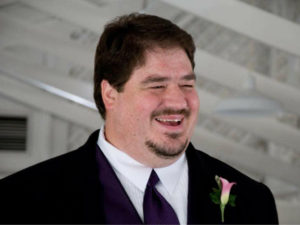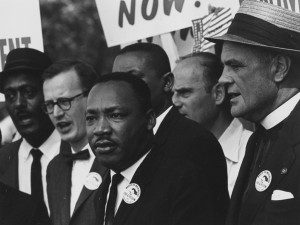Taste and See
 Last Friday morning I woke up to see that I had missed a call just after 5:00 a.m. Shortly after noticing that I received a second call. Both calls were from old friends I had not seen in several years. Those kinds of early morning calls do not usually bring news you want to hear, and this one was no different. My youth minister and friend, Ed McGaughy, had passed away. After our worship service Sunday evening, I drove to Mobile, Alabama for his memorial service. I hope you will be encouraged by learning a little more about him.
Last Friday morning I woke up to see that I had missed a call just after 5:00 a.m. Shortly after noticing that I received a second call. Both calls were from old friends I had not seen in several years. Those kinds of early morning calls do not usually bring news you want to hear, and this one was no different. My youth minister and friend, Ed McGaughy, had passed away. After our worship service Sunday evening, I drove to Mobile, Alabama for his memorial service. I hope you will be encouraged by learning a little more about him.
I first met Ed when I was a teenager. I could not tell you exactly where we first connected, because he was involved in so many things that I was a part of. Before he was in youth ministry, Ed and his brother, David, helped out with our high school band. Ed and his wife, Cathy, directed the Vacation Bible School at one of the local churches. At a church of 275 members, they grew the VBS attendance to over 600 kids. When I was in high school, Ed managed a patio furniture and mattress store where one of my good friends was the delivery guy. I would spend many afternoons and summers at the store, helping out with deliveries, playing cards and mostly…laughing. No matter the setting, Ed was always the loudest guy in the room, and he had a laugh that was infectious. Since hearing of his death last week, I’ve thought several times about Ed’s laugh.
While he ran the patio furniture store, Ed also became the part-time youth minster at the church I attended. For the last two years of high school I spent most of my Sunday evenings after worship at Ed and Cathy’s house. We ate, sang, talked about God and life, played cards and did a whole lot of laughing. He later went into youth ministry full time and blessed more teens in the same way. At his memorial service on Monday, I heard so many stories from people who had that same experience. All of us had a few more shared thoughts.
Ed loved God. So many conversations with Ed would come back to how great our God is and how He works in our lives. Ed loved his kids. He had four sons. When he and Cathy opened their home to group after group of teenagers on Sunday evenings, he would disappear from the card game, discussion or movie for a few minutes. We soon realized he was with his kids praying with them and getting them ready for bed. He never missed out on that. Ed loved his wife. Early in marriage, he and Cathy had a severe car accident where she nearly died and had a lengthy recovery process. He was by her side every step of the way. Later in life when Ed’s health began to decline, she was there for him. In the years between they modeled a Christian marriage to all of us who knew them. Most of all they helped us see God more clearly.
Dangerous Unselfishness

Last Monday, our nation took time to recognize the legacy of Dr. Martin Luther King, Jr. For 13 years, I lived 150 miles from where he marched in Selma and for the next 17 years I lived 100 miles from where he was killed in Memphis. Regardless of what people may think about the man, his methods or his politics, for many he symbolizes the desire for unity, service and concern for our fellow man. You have probably heard his “I Have a Dream” speech. Below is a section of another speech he gave the day before his assassination.
“Let us develop a kind of dangerous unselfishness. One day a man came to Jesus, and he wanted to raise some questions about some vital matters of life. At points he wanted to trick Jesus, and show him that he knew a little more than Jesus knew and throw him off base. Now that question could have easily ended up in a philosophical and theological debate. But Jesus immediately pulled that question from mid-air, and placed it on a dangerous curve between Jerusalem and Jericho. And he talked about a certain man, who fell among thieves. You remember that a Levite and a priest passed by on the other side. They didn’t stop to help him. And finally a man of another race came by. He got down from his beast, decided not to be compassionate by proxy. But he got down with him, administered first aid, and helped the man in need. Jesus ended up saying, this was the good man, this was the great man, because he had the capacity to project the ‘I’ into the ‘thou,’ and to be concerned about his brother.”
That kind of concern for brothers is something the young church at the end of Acts 2 places a lot of importance on. They learned together. They prayed together. They shared what they had. They took care of one another’s needs. Their number grew as a result.
So many of the things that God asks of us involve how we treat each other. “Honor your father and mother. Turn the other cheek. Forgive. Value others above yourselves. Love your neighbor.”

